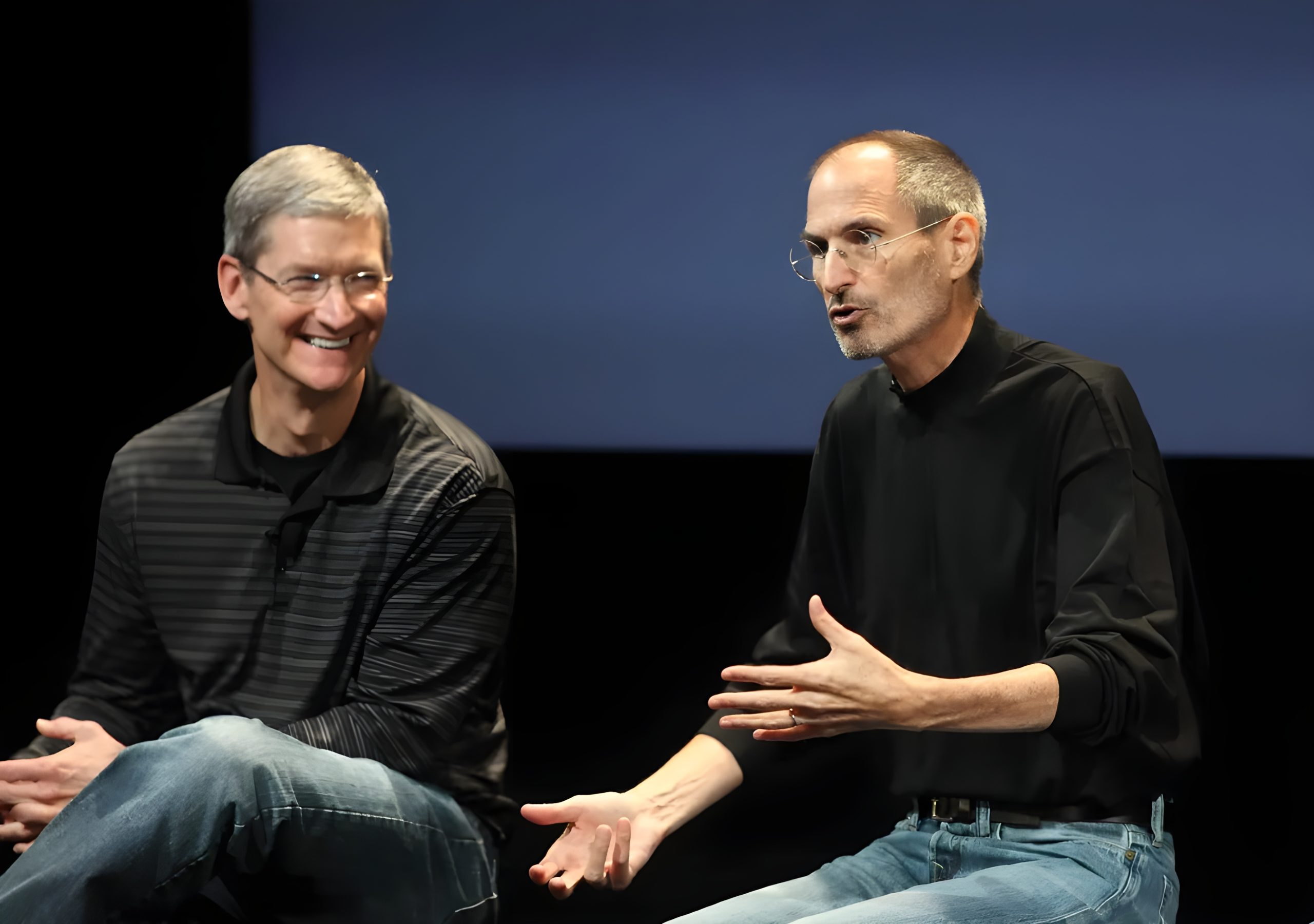
Corporate growth is as much a story of a personality cult as it is of innovation and market timing. Whoever tries to diminish the importance of a visionary CEO should peruse Steve Jobs’ biography and the outsized role that he played in propelling Apple to the apex of the global tech industry.
It is perhaps due to Steve Jobs’ larger-than-life persona that Tim Cook, Apple’s incumbent CEO, is perceived as a relatively bland leader. This perception is quite surprising when one considers the fact that Apple has never had a greater heft than what it does right now, worth over a tenth of the US GDP. Yet, based on certain metrics, this perception is indeed warranted, and the company, without its beloved and charismatic leader, appears stagnated.
It is common knowledge that Steve Jobs and Steve Wozniak started Apple in a garage in 1976. But, by 1985, Jobs was in a precarious position within Apple, courtesy of one of his own hires: the ex-CEO of PepsiCo, John Sculley.
At the time, Sculley and Jobs were locked in a bruising one-upmanship over two of Apple’s products, the Lisa and Macintosh, and their lethargic sales performance. Sculley ultimately prevailed, however, and Jobs was removed from his beloved Macintosh division.
Brimming with self-righteous ire and ignominy, Steve Jobs took his case to Apple’s board, where he reportedly delivered a scathing rant, ruffling many feathers in the process. What followed remains a point of contention: Steve Jobs maintained that he was fired by the board shortly thereafter, while Sculley asserted that Apple’s co-founder quit out of his own volition.
Jobs went on to found NeXT, a high-end computer manufacturer. But, by 1996, NeXT was struggling after failing to sell itself to a competent bidder. Eventually, Apple acquired Steve Jobs’ company, bringing him back into the fold, so to say. The date was legendary: September 16.
Lady Luck, however, had one last trick up her sleeves. After Apple’s then-CEO, Gil Amelio, tanked the company’s stock price with a hefty stock liquidation spree, the board replaced him with Steve Jobs, allowing his vision to unfold over the next decade, culminating in the launch of the iconic iPhone in 2007.
Why Tim Cook Is Often Perceived As A Relatively Bland CEO
Tim Cook took over Apple’s leadership mantle after Steve Jobs resigned in 2011 due to health issues. Since then, as stated earlier, Apple has been a spectacular success in the stock market, with gains of over 1,500 percent since September 2011!
In many other ways, however, Apple has remained largely stagnant. For instance, since 2015, the annual shipment volume for the iconic iPhone has oscillated between 200 million and just shy of 250 million. Yes, Apple’s services division has truly come of age in this period, but the company’s bread and butter – the iPhone – has not experienced a truly meaningful growth spurt in volume terms.
What’s more, Tim Cook is not exactly cheap for Apple, currently costing the company $529,000 for every 1 percent of the average total stock return that Apple ekes out. For comparison, do note that NVIDIA’s Jensen Huang costs his company just $30,000 for the same feat, as per a tabulation by CEORater.



